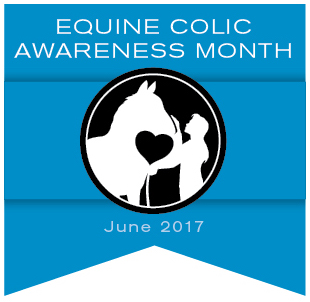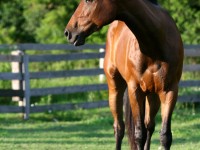
Author: Anonymous One Sunday morning I was on my way to work and I got the phone call no horse owner wants to get. “Uhh, T is colicking, you better get up here as soon as you can.” Called work saying I just couldnt make it. They are not horse people and didn’t understand, and I risked getting fired. I didn’t care. That car ride up to the barn was [ Read More ]

Author: Geoff Tucker, DVM, The Equine Practice Colics could be avoided in my opinion if we treated horses like horses. Unfortunately it is almost impossible to do this today. With horses housed behind fences in small paddocks and overcrowded in large barns, the ideal environment is sacrificed for our convenience. Let’s look at only one aspect of this confinement that directly affects the horse and his ability to maintain a [ Read More ]
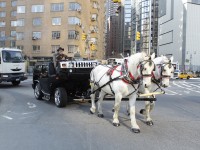
Author: Elaine Juska Joseph, Cedar Knoll Farm Duke and Diesel is one of Cedar Knoll Farm’s main carriage teams (we currently have nine Percherons). Not only are they a top-notch commercial team of greys used for weddings and carriage rides, but we also use them for farming, such as plowing, haying, disking and logging. They are an impeccable, hard working and well-matched team, and without a doubt the one team [ Read More ]
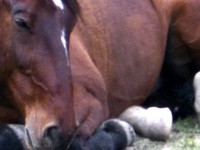
We generally consider colic to be a spasm in the colon linked to gas build up, blockages, and twists in the equine gut. In most colic cases, the vets have no idea what caused the issue. There are several factors, especially related to feeding and management, that research suggests may be major contributors to colic.
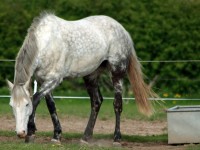
By the time a horse is refusing food, biting its sides, or rolling in pain, you already have serious problem. At that point, you’re in crisis mode working to minimize the damage. But what if you could recognize a horse at risk for colic and address the issue before it progressed that far?
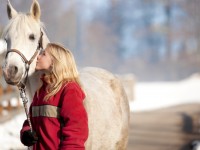
Reducing starchy feed concentrates, providing constant access to forage, keeping a consistent feed program, and regular turnout and exercise are the best ways to reduce your horse’s risk for colic.

The Crusade Against Equine Colic is a movement empowering all horse people to learn how to reduce our horses’ risk for colic – and to share that knowledge with fellow equestrians.
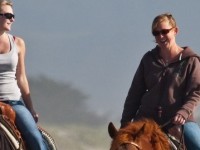
There isn’t a person involved with horses for a length of time who has not been touched by colic in some way, whether through your own horse, a friend’s horse, or a barn mate. Share a story in memory of a horse you lost or to honor one that survived.













